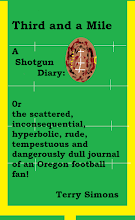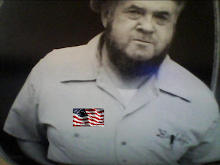Weldon Kees (1914-1955) is an often overlooked American poet and musician who was born and raised in Beatrice, Nebraska. I found him in an anthology of poets called
Naked Poetry : Recent American Poetry in Open Forms,
: Recent American Poetry in Open Forms, edited by Stephen Berg and Robert Mezey. This book was my bible in the early days of what passed for my academic training in poetics at the University of Oregon. Published in 1969, the collection is often credited for the rediscovery of Kees, a man who remains one of my guiding lights as a poet.
As much as I loved his work, I had never bothered to gather information on his background, until a strange coincidence occurred about twelve years ago. I was living in Beatrice, Nebraska during a short-lived romance that was fast turning into a disaster. I was killing time one day in the Beatrice Public Library, much in need of a dose of something medicinal, when I found a book about Kees on a shelf dedicated to Nebraskan writers. That's when I discovered Kees was from the very town where I sat reading his bio! (Well, come on. It's not like going to NYC and Lowell, Mass. and discovering them to be Kerouac's romping grounds. I mean, I already knew that when I passed through Lowell the first time).
I later shared this stunning (to me) discovery with as many of my Beatrice acquaintances as I could. None of them had heard of Kees, a favored son, an important man of letters, a brilliant jazz pianist, a painter, a former Time Magazine writer, a graduate of UN, Lincoln, a...a...a...
Worse, none of them were impressed.
Poetry can be an awfully lonely business, but knowing Kees' work makes it worthwhile. This is Kees at his most brilliant:
CRIME CLUB
No butler, no second maid, no blood upon the stair.
No eccentric aunt, no gardener, no family friend
Smiling among the bric-a-brac and murder.
Only a suburban house with the front door open
And a dog barking at a squirrel, and the cars
Passing. The corpse quiet dead. The wife in Florida.
Consider the clues: the potato masher in a vase,
The torn photograph of a Weslyan basketball team
Scattered with check stubs in the hall;
The unsent fan letter to Shirley Temple,
The Hoover button on the lapel of the deceased,
The note: "To be killed this way is quite all right with me."
Small wonder that the case remains unsolved,
Or that the sleuth, Le Roux, is now incurably insane,
And sits alone in a white room in a white gown,
Screaming that all the world is mad, that clues
Lead nowhere, or to walls so high their tops cannot be seen;
Screaming all day of war, screaming that nothing can be solved.
Kees was a prodigy, a gifted but troubled man. He leaped to his death, it is presumed, from the Golden Gate Bridge. His car was discovered on the bridge with the motor running, so that is probably what happened to him in 1955, but every time I saw an old man in Beatrice after my discovery, I looked closely for a resemblance to Kees. Maybe, I thought, just maybe he left San Francisco and returned home to live in anonymity.
Here is a
bio of Kees, with extras.
TS
 But before I go, here is a link to a 1982 Paris Review interview with the playwright. If you're unfamiliar with Ionesco (there may be a few of you out there) start with his first play, The Bald Soprano.
But before I go, here is a link to a 1982 Paris Review interview with the playwright. If you're unfamiliar with Ionesco (there may be a few of you out there) start with his first play, The Bald Soprano.  It is my pleasure to introduce this week's Idiot of the Week, an occasional blast of left-wing hubris bestowed on a deserving idiot by Round Bend Press and its name-calling, un-PC blogger, me.
It is my pleasure to introduce this week's Idiot of the Week, an occasional blast of left-wing hubris bestowed on a deserving idiot by Round Bend Press and its name-calling, un-PC blogger, me.










































